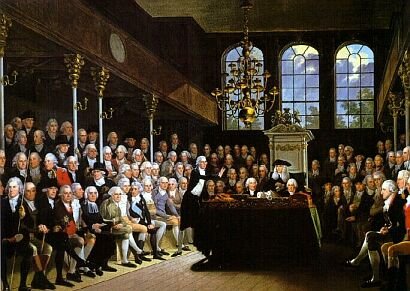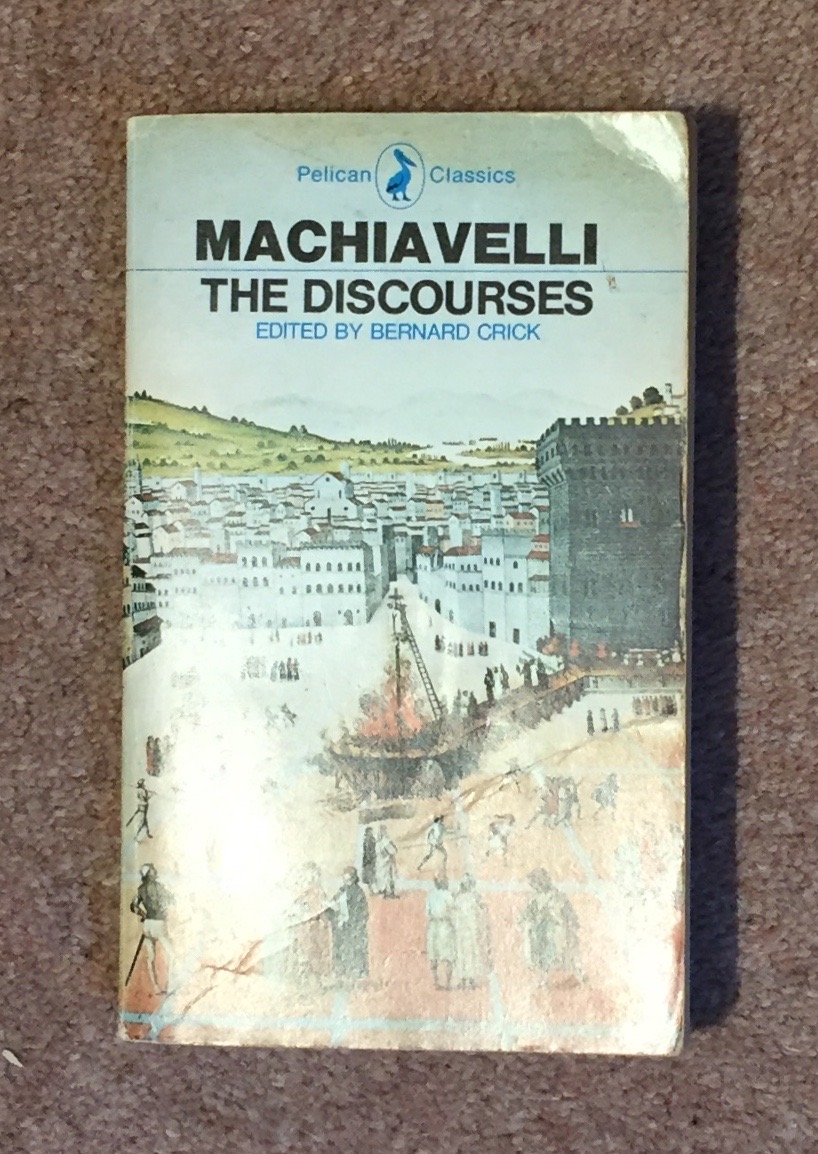There has been much talk in recent weeks of the presence of corruption in British politics. The Prime Minister and members of the Cabinet appear to be relaxed about accepting gifts from wealthy donors. Keir Starmar is said to have accepted £76,000 worth of gifts since 2019 including £16,200 of work clothing from the Labour peer Waheed Alli, as well as corporate hospitality at Arsenal and Taylor Swift concert tickets. (For an in-depth assessment see Peter Geoghegan, 'Labour and the Lobbyists', London Review of Books, 15 August 2024, pp. 10-12).
Image of the Prime Minister’s official residence at 10 Downing Street, taken from Wikimedia Commons.
Of course, such gifts are nothing new, and the perks Labour ministers have accepted pale into insignificance alongside Boris Johnson's Caribbean holiday on the island of Mustique, courtesy of the co-founder of Carphone Warehouse David Ross, and the refurbishment of his Downing Street flat that was paid for by Lord Brownlow. The idea that being in government brings perks way beyond the imagination of most working people seems to be widely accepted, at least among politicians themselves.
However, there is an issue about the gap that this creates between the Government and those it governs and represents. Another concern is the fact that the gift-givers might expect something in return - such as a blue light escort through the capital or favourable deals and contracts.
Corruption is not a new problem in Britain. As long ago as 1701, a pamphlet was published entitled: The Corruption and Impiety of the Common Members of the Late House of Commons. Its author claimed that the government had fallen into decay and observed that even those candidates who before being elected had insisted that they would be 'True-Representatives of the People' - once in office 'have done nothing worthy of the Name of Englishmen' (The Corruption and Impiety of the Common Members of the Late House of Commons. London, 1701).
While what was meant by corruption in the eighteenth century was not necessarily the same as what is meant by it now, understanding how the term was used then and why it was a cause for concern, might illuminate the issues under debate today.
Image depicting Aristotle. Taken from Wikimedia Commons.
In the late seventeenth and early eighteenth centuries, concern about the problem of corruption was grounded in the understanding that the British constitution required that the three elements of the system - Crown, Lords, and Commons - needed to be balanced with and against each other, so as to ensure that the whole would operate in the interests of the public good. The notion of balance in government was based on ancient ideas: Aristotle's assessment of the advantages and disadvantages of the rule of the one, the few, and the many; and Polybius's suggestion that a mixed government comprising all three could secure the advantages of each without their disadvantages. This understanding of mixed or balanced government - and of the English parliamentary system as an embodiment of it - was voiced by many on the parliamentarian side during the mid-seventeenth-century Civil Wars. More interesting is the fact that in 1642 it was used by the writers of His Majesties Answer to the Nineteen Proposition to counter the demands made of the King in those Propositions:
There being three kinds of government among men (absolute monarchy, aristocracy,
and democracy), and all these having their particular conveniences and
inconveniences, the experience and wisdom of your ancestors has so moulded this
out of a mixture of these as to give this kingdom (as far as human prudence can
provide) the conveniences of all three, without the inconveniences of any one, as
long as the balance hangs even between the three states (His Majesties Answer to the
Nineteen Proposition, London, 1642).
The pamphlet went on to argue that the demands being made by Parliament in The Nineteen Propositions - such as the requirement that all officers and counsellors be approved by Parliament - if adopted, would disrupt the balance by shifting power from the King to the Commons.
For opposition writers in the late seventeenth and eighteenth centuries it was not the Crown that was at risk from the Commons, but rather the Commons that was at risk from the Crown. As the author of The Corruption and Impiety of the Common Members of the Late House of Commons noted:
It hath been a common and known Practice for this Forty Years last past; for Men of
Confidence and ready Elocution, if they could but procure an Election in some little
Mercenary Burrough, and so get into the House, presently to set themselves to
oppose the King and the Court, that they might be bought off by some good
Gratuity; Pension, or Place (The Corruption and Impiety, p. 2).
‘James Murray’, by Pollard, 1770s. National Portrait Gallery, NPG D32123. Reproduced under a Creative Commons Licence.
In order to control Parliament, the monarch and ministers would offer money, pensions or positions to elected MPs. From 1706 the term 'placemen' began to be used to denote those implicated in this practice. According to the Oxford English Dictionary a 'placeman' is: 'A person who is appointed (or aspires) to a position, esp. in government service, for personal profit and as a reward for political support; a yes-man.' Placemen remained an issue throughout the eighteenth century. In 1774 the Newcastle minister and political activist James Murray spoke, via a thinly veiled reference to the Biblical state of Moab, of representatives selling out to the crown for 'places, pensions, and perquisites' so that the institution that was supposed to represent and protect the people's interests and liberties became a means of enslaving them. The system of places introduced was 'only to be enjoyed by the friends of the court, or such as wished well to its interests'. By this means, those appointed by the nation 'to guard their liberties in parliament, were corrupted, and sold their constituents for a place under, or a pension from the government.' (James Murray, New Sermons to Asses. Philadelphia, 1774, p. 9).
Not long after, the newly established 'Society for Constitutional Information' noted that the public had been repeatedly warned about the venality of their representatives and called for various changes aimed at expelling 'minions of a court from the temple of public freedom' and restoring 'parliaments to their original purity and people to their rights'. (A Second Address to the Public from the Society for Constitutional Information. London, 1782, pp. 9-10). The arguments of the Society on this point were again grounded in their understanding of the balance of the constitution and the importance of the three elements - King, Lords and Commons - remaining independent of each other: 'The moment that either the Crown, the Lords, or the Commons lose their independence, in that moment our Constitution is violated, our Government is overturned, and our Liberty is endangered.' (An Address to the public, from the Society for Constitutional Information. London, 1780, p. 1).
The kind of corruption at issue today is, of course, different from that condemned by James Murray and the Society for Constitutional Information. For those interested in the complexity and history of the concept I recommend Mark Knights’s book Trust and Distrust: Corruption in office in Britain and its Empire (Oxford, 2021). Today there are many sources of corruption, but the bottom line is the dominance of private interests, including those of the rich and the powerful, over the public interest or the common good.












